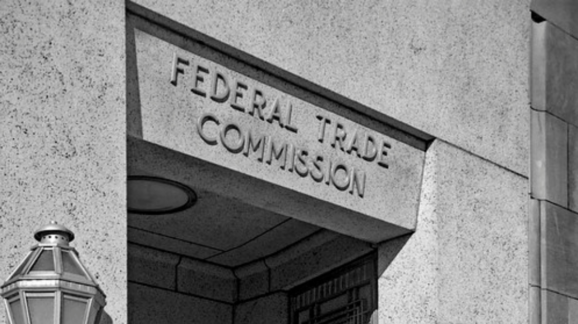Lina Khan’s tenure as FTC Chair highlights need for reform of the agency

Photo Credit: https://www.flickr.com/photos/22711505
Three years ago, today, President Biden nominated Lina Khan to the Federal Trade Commission (FTC). The Senate confirmed Khan as a commissioner later in June 2021. But soon after, Biden broke with political norms and quickly named Khan as chair of the FTC, a maneuver that the Wall Street Journal’s editorial board called “An Antitrust Bait and Switch.”
Looking back, it seems fitting that Lina Khan’s quick rise to FTC Chair began with controversy and a departure from norms. It was foreshadowing.
Several months later in November 2021, Khan’s FTC invited the public to comment on the agency’s Draft Strategic Plan. Many raised concerns when the draft omitted language from the FTC’s mission statement that had been present for 25 years. It struck “without unduly burdening legitimate business activity.” Providing commentary on the proposed change, Andy Jung from TechFreedom said,
By deleting the clause, the FTC weaponizes uncertainty against businesses. The Draft Strategic Plan suggests that the FTC intends to police or burden certain legitimate business activity, begging the question: what types of conduct will the agency target next? Smart money is on the business practices of large technology firms…
Chair Khan certainly had her eye on large technology firms, having risen to prominence for her 2017 Yale Law Journal article, “Amazon’s Antirust Paradox.” But it’s not surprising that she has targeted other industries in the American economy, like healthcare, agriculture, and even soft drinks.
Under Lina Khan, the FTC has indeed weaponized uncertainty. The Commission rescinded a bipartisan 2015 Policy Statement on how the agency would exercise its power under Section 5 of the FTC Act. Khan’s FTC replaced it with a new, broader policy statement that signaled the intention to extend its Section 5 authority over “unfair methods of competition” outside violations of the antitrust laws.
Notably, the FTC sought out rulemaking authority to ban all noncompete clauses in employment contracts. In January of last year, the FTC released a notice of proposed rulemaking pursuant to Sections 5 and 6(g) of the FTC Act to prohibit not just noncompete clauses. The rulemaking warns that other restrictive covenants like non-solicitation agreements and non-disclosure agreements could also serve as “de facto non-compete clauses,” adding to increased uncertainty as to the status of millions of employment contracts. And there’s a multitude of reasons why the FTC lacks such rulemaking authority under Section 6(g) of the FTC Act.
Further, the FTC, along with the Department of Justice (DOJ), has fostered regulatory uncertainty in the merger review process by suspending the granting of early termination under the Hart-Scott-Rodino Act (HSR), which gives companies the go-ahead to merge before the conclusion of mandatory waiting periods once the agencies determine that a transaction poses no anti-competitive threat. Three years after the temporary suspension, it’s starting to look permanent.
Khan’s FTC also proposed rules changes to the HSR Form last summer, changes that would needlessly quadruple the compliance costs for merging companies even if the contemplated transaction poses no anticompetitive problems. These new rules, paired with the antitrust agencies’ new 2023 Merger Guidelines, provide a bureaucratic finger-waving to businesses as a warning not to merge.
While some still have faith in the FTC as an institution, Lina Khan’s tenure as chair illustrates that the agency, in its present form, is inherently problematic and requires structural reform.
One possible reform is the One Agency Act (H.R. 7737), which was recently reintroduced by Rep. Ben Cline (R-VA). It was also introduced last Congress. This legislation would strip the FTC of its antitrust authority and place it solely within the DOJ’s Antitrust Division. The bill’s text states that “The overlapping antitrust enforcement jurisdiction of the Department of Justice and the Federal Trade Commission has wasted taxpayer resources, hampered enforcement efforts, and caused uncertainty for businesses and consumers in the United States.”
There are legitimate questions as to whether two antitrust agencies are better than one to file an antitrust suit. But most importantly, the DOJ is required to file all antitrust cases in federal court, unlike the FTC which can bring antitrust challenges through its internal adjudication where it acts as investigator, prosecutor, and judge. The DOJ does not have the same type of subjugating authority to engage in administrative activism like the FTC does. But the DOJ is trying its best, by the looks of its antitrust suit filed against Apple yesterday.
Nearly three years into the Khan FTC, the agency is suffering from internal strife, the US regulatory environment is increasingly uncertain and an unknown amount of efficiencies have been sacrificed in abandoned or delayed mergers. It might be time for the FTC to reconsider its course.